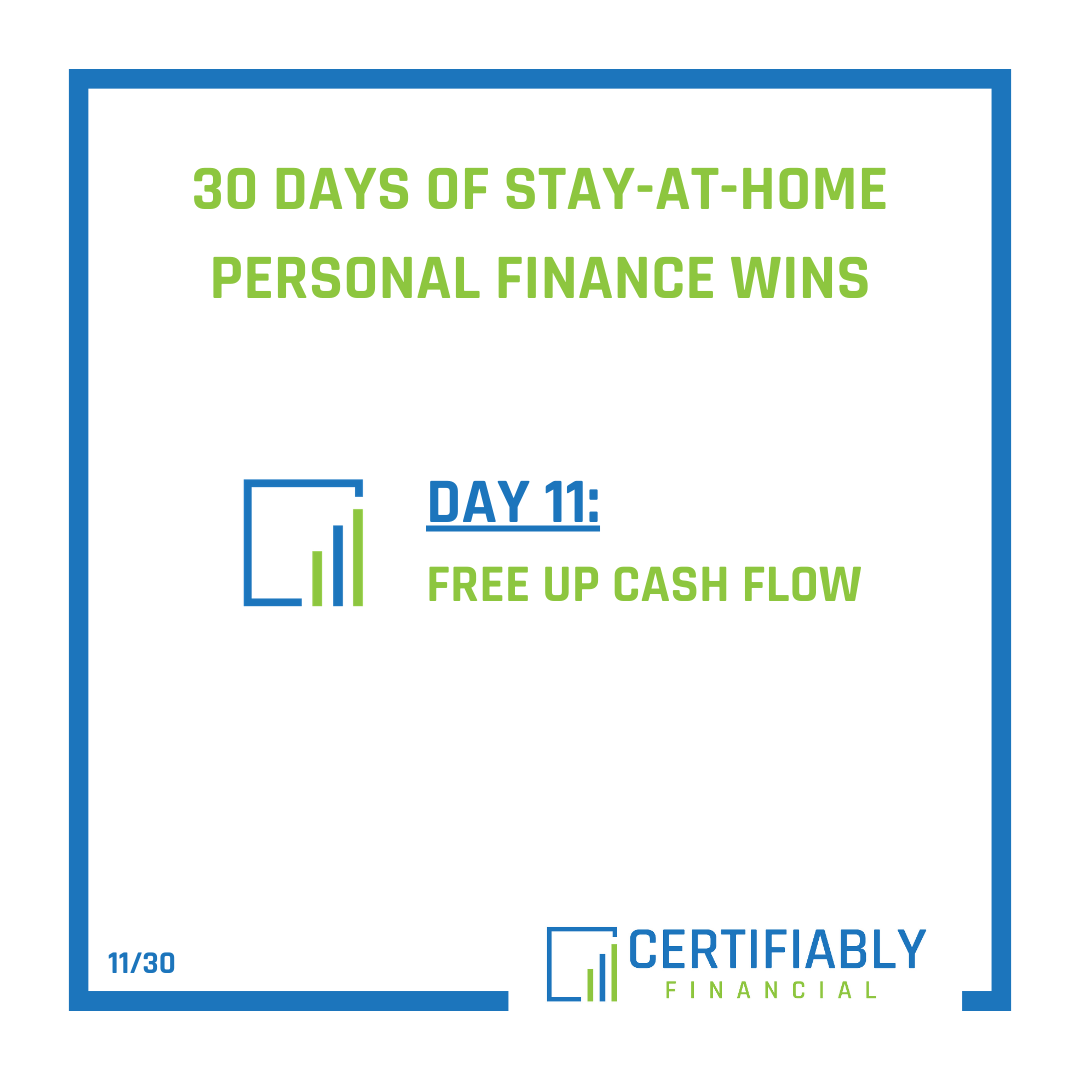What if you were able to come out of this time of social distancing and economic crisis with a stronger and healthier financial life? What if you looked at this as an opportunity to take a little bit of your extra time each day to work on your finances?
Since it takes me about 35 minutes to drive to work in the morning and 45 minutes on the way back home, I have an extra 1 hour and 20 minutes of my day that I don’t have to drive while I’m working from home that I can use to accomplish something. This doesn’t even take into consideration all of the networking and social events that would usually take up some of my time throughout the week.
Obviously, your situation is different than mine (and probably a whole lot different if you have kids at home who would otherwise be in daycare), but I’m guessing that we all have at least a little extra time right now that we can dedicate to our personal finances.
It looks like we’re going to continue to practice our social distancing skills at least through April, and now is a great time to work on creating a better financial situation, so I’m giving you 30 days of stay-at-home personal finance wins throughout April.
Unfortunately, I understand that there are many who have (and who will) lose their jobs during this time of uncertainty and objectively will not come out on the other side of this with a stronger financial situation. Hopefully, many of these personal finance wins can help to lessen the blow and make things easier on them. On the other hand, I think that many of these wins are still relevant to those who are fortunate enough to be in a position to not have to worry about their job and their finances to help them build a healthier financial life.
Day 11: Free Up Cash Flow
Take what you learned from reviewing your spending yesterday and find ways to free up cash flow. If you’re in a good spot financially and don’t have anything to worry about, then this will make things even better and give you more to save for your goals, spend on your money dials, or help others with. If you’re in a bad position and/or could potentially be furloughed or laid off, then this might be much more important to you.
You’re probably saving money right now by not spending on things that you would in a normal environment like gas, coffee from a shop, lunch out, drinks after work, and dining out, among other things. Some of the money that you’re saving during social distancing will inevitably be spent once your schedule gets back to normal, but I want to urge you to consider how much of that spending you really need to do.
Does it provide you with that much happiness and convenience to get coffee everyday instead of making it at home or to eat out for lunch instead of bringing your lunch? How many of the expenses that have been cut down due to social distancing do you really miss that much? Would you be fine without them once you get back into a more normal routine?
There are plenty of other ways that you can find to free up cash flow including canceling subscriptions and memberships that you don’t use, getting quotes from an independent insurance broker to see if you can save money on premiums (make sure you don’t sacrifice coverage), and even refinancing your mortgage if it makes sense.
A lot of people pay for expensive cable packages that they barely even use when they could find a much cheaper streaming service or are paying for really expensive cell phone plans while they could be using a much cheaper alternative like Google Fi, Visible, or Mint Mobile. There are so many things that a lot of us spend more money on than we need to but just don’t take the time to optimize. Now is a great time to do so.
If you need a little more motivation, then you can make it into a game to see how much cash flow you can free up. Challenge yourself to see if you can find $500 per month within your current expenses to get rid of. Wouldn’t it be awesome to have that extra money every month to save for your goals or to spend on things that are actually significant to you?
Here are some other strategies that you can use to help you free up cash flow: How to Save More Money in 2020
30 Days Of Stay-At-Home Personal Finance Wins
- Day 1: Understand The CARES Act
- Day 2: File for Unemployment or Short-Time Compensation
- Day 3: Request Forbearance
- Day 4: File Your Tax Return (Maybe)
- Day 5: Commit to Yourself
- Day 6: Practice Financial Distancing
- Day 7: Don’t Panic
- Day 8: Create An Online Shopping Strategy
- Day 9: Find & Store Your Login Information
- Day 10: Review Your Spending

